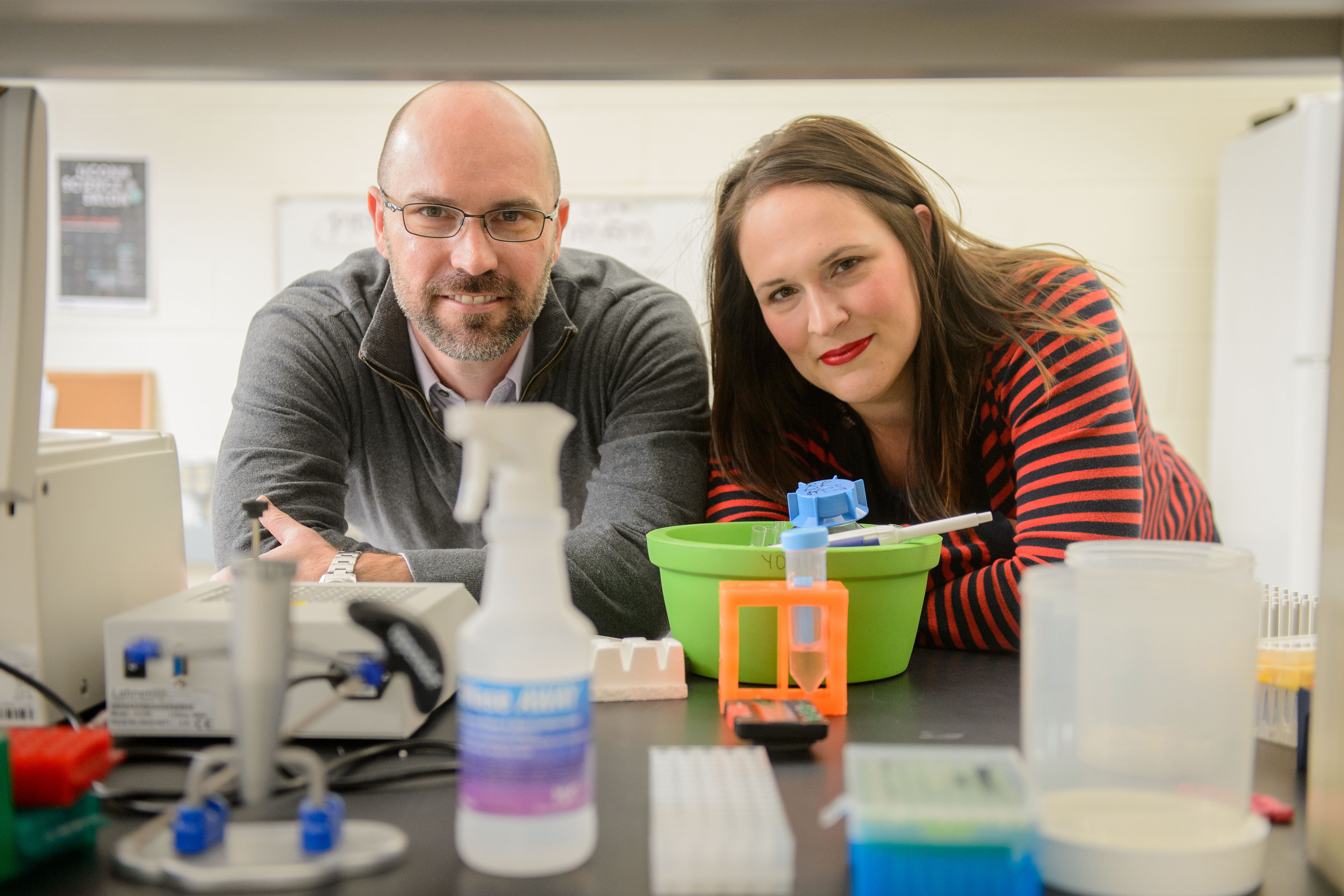Pain is a messenger, come to tell us something’s wrong, but it speaks louder to some people than others. Erin Young wants to know why.
Whether she’s listening to a colleague discuss a patient’s unusual reaction to medication at the Center for Advancement in Managing Pain (CAMP) in UConn’s School of Nursing, or poring over gene expression data in her lab at UConn Health’s Cell and Genome Sciences Building, she always wonders. Why does this person feel so much pain? Why does this other person not?
A messenger is only as good as the information it carries. Pain from the densely nerved skin shrieks GPS coordinates as precise as a pinprick, while the sparsely nerved viscera merely mumble. And sometimes the messenger cries wolf, claiming injury or illness where none is apparent.
“The pain seems to be a living, breathing thing of its own,” in these cases, Young says.
Many healthcare practitioners are trained to regard pain as being important only as an indicator of how successful treatment is. If a patient’s cancer is in remission but they still have pain, well, that doesn’t fit into the paradigm. If the patient is fully recovered but has lifelong pain stemming from the surgery that cured them, well, some things can’t be helped. But nurses tend to approach pain differently. If it affects a patient’s quality of life, a nurse will want to alleviate it. Young is a pain geneticist, not a nurse, but her position in CAMP and the School of Nursing lets her work in collaboration with nurses all the time. It’s a good fit.
Nurses believe that when the pain is not dependent on an illness – when it persists, even if a patient appears healthy – that’s when you have to find and treat the fundamental mechanism. And our DNA is perhaps the most fundamental mechanism of all. Young tries to relate small variations in our DNA to how much we hurt.
She’s found, for example, that depending on the genetic variant you carry, bee stings might feel excruciating or might just make you numb. Other pain-related genes she’s identified could explain why some women find the lifelong chest pain after a mastectomy so terrible they claim they’d rather have died of breast cancer. And she’s found genetic hints that might explain irritable bowel syndrome, which is by definition pain in the abdomen with no obvious cause.
“Most of us don’t say: Oh! There’s a fecal bolus passing through my colon!” Young said recently at the UConn Science Salon on pain. A nurse in the back of the house muttered that it was only a matter of time before Young was going to start talking about rectal pain. Her fascination with bowel pain is something of a running joke among her colleagues. But she believes it’s extremely important as a window, perhaps a key window, into pain perception. Most people are blissfully unaware of their internal organ processes most of the time. But the person with irritable bowel syndrome is aware of them, often to an excruciating degree. And the syndrome seems to be related genetically to other diseases of chronic pain, such as fibromyalgia. If one of your relatives has fibromyalgia or irritable bowel syndrome, you are much more likely to develop one or the other yourself.
“That’s why I’m so interested,” says Young.
Before Young came to UConn, she was a researcher at the University of Pittsburgh, which has one of the few clusters of bowel pain specialists in the world. When she came to UConn, she brought some of that expertise here. Not only does she collaborate with gastroenterologists and nurses at UConn Health and Connecticut Children’s Medical Center, but she also has a mouse model of irritable bowel syndrome. And it has already uncovered some genetic clues. She found two strains of mice that are closely related, but one develops the mouse version of irritable bowel syndrome while the other does not. The two strains differ by only a few genes, one of which seems to be connected to pain. This gene might predispose people to visceral pain – or chronic pain conditions in general.
“I don’t have a favorite kind of pain, but this is what I’m most excited about right now,” Young says. Bowel pain talks to her, and she’s busy deciphering its message.



